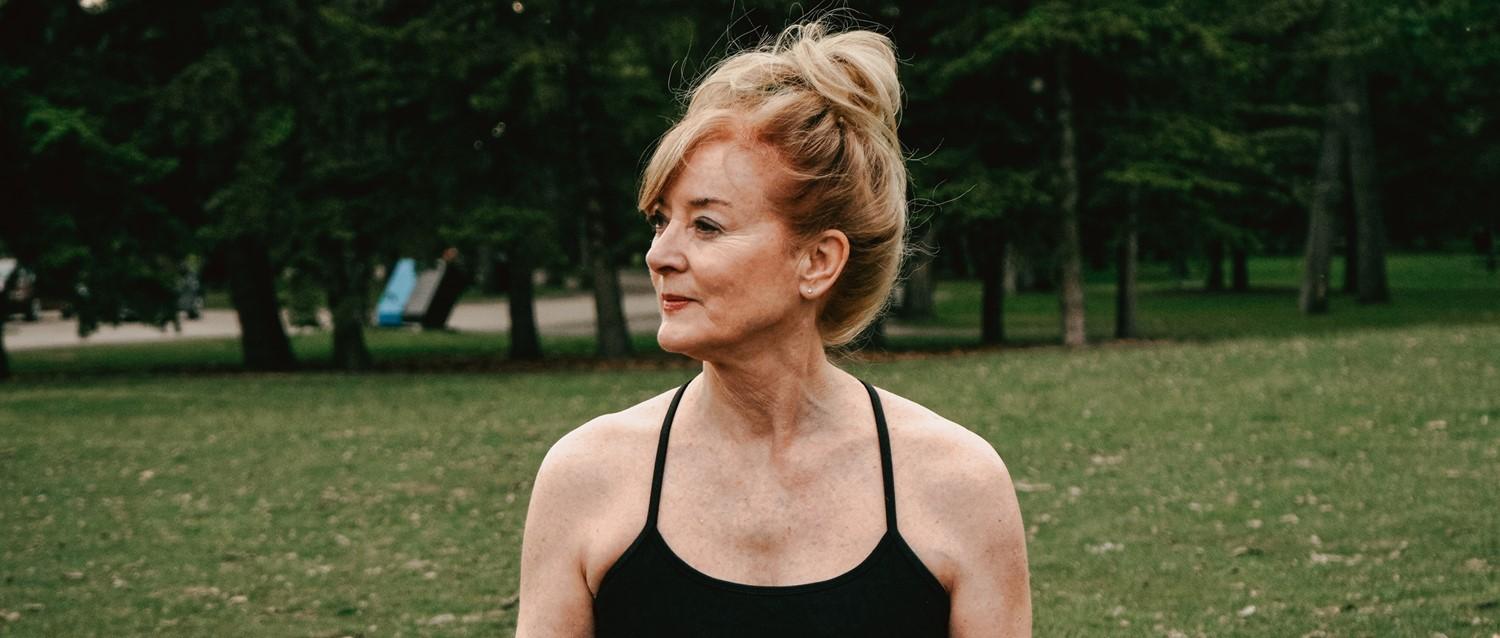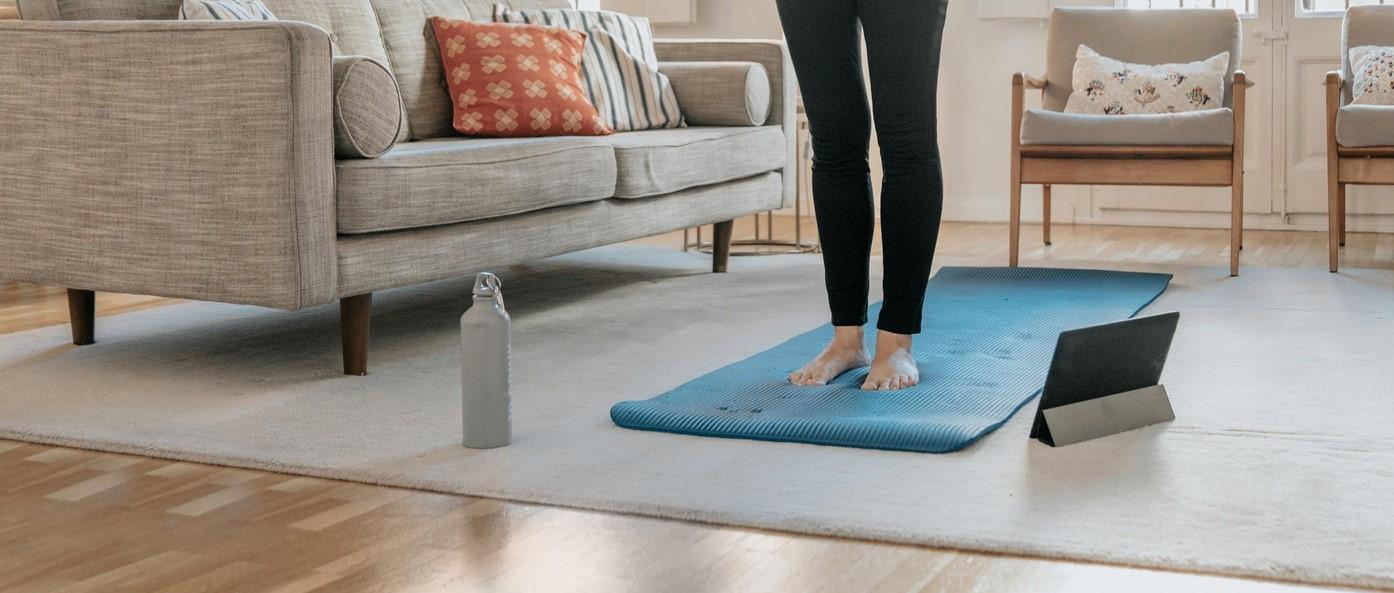
How physiotherapy can help people with lung conditions
Peer reviewed by Dr Sarah Jarvis MBE, FRCGPLast updated by Allie AndersonLast updated 5 Feb 2020
Meets Patient’s editorial guidelines
- DownloadDownload
- Share
- Language
- Discussion
Lung conditions can affect every part of someone's life and well-being, from movement to socialising. For people affected, experts recommend pulmonary physiotherapy to help manage and improve the condition. So how exactly does it work, and how could it benefit you?
In this article:
When Carol Liddle was diagnosed with chronic obstructive pulmonary disease (COPD) five years ago, she was left bewildered and unsure what her future would hold.
At just 54, Carol had experienced symptoms for a while and was finding herself gradually less able to do everyday things that she'd previously taken for granted, because she was getting out of breath quickly and easily.
COPD describes a group of lung conditions in which the airways are narrowed, making it difficult to expel air from the lungs. People with COPD, like Carol, experience breathlessness on exertion - and this could be gentle, everyday activity like just walking on the flat, climbing stairs or doing housework.
Thankfully for Carol, she was told about a type of specialised physiotherapy for people with respiratory conditions, called pulmonary rehabilitation (PR).
"The practice nurse said it would help me understand my diagnosis and help me find ways to be able to do more," Carol explains. "I was referred by the nurse at diagnosis and was incredibly lucky enough to be accepted on to the six-week course within six weeks from referral."
Continue reading below
What is pulmonary rehabilitation?
This specially designed treatment - usually run by physiotherapists but often involving respiratory nurses and occupational therapists - can help anyone with breathing difficulties to move around more easily and achieve improvements in functional activity, PR specialist physiotherapist Lauren Hogg explains.
"It can really help people to walk further, climb stairs more easily, feel better about themselves and feel more in control of their breathlessness," she says. "The sessions are for groups of people who all experience similar symptoms from their lung problems. It's usually a six- to eight-week course and sessions are held twice a week.
Each session involves moderate exercise that's appropriate for the people taking part, so it challenges them without pushing them too far. The exercises are designed to strengthen the leg muscles in particular - for example, through walking, cycling on a static bike, and doing step-ups.
Other exercises target the arm muscles and core, and together, the sessions are aimed at gradually building people's fitness. But equally important is learning how to manage the symptoms of lung disease.
"A good pulmonary rehab course is a combination of education about your lung disease, breathing techniques and when to use them for best effects, and relaxation techniques," Carol says.
"So much of the problem can be down to panic and anxiety, so it's really important to understand that although you're going to get breathless, you can deal with the situation. Learning all these things gives you much more understanding and control over your symptoms and emotions."
Seeing benefits
It's not uncommon for people with severe lung conditions, like COPD, to get trapped in a cycle of inactivity, isolation and worsening breathlessness.
You get out of breath, so you tend to shy away from doing any kind of activity, which means you're less likely to go out and move around. As a result, you lose strength and fitness, which in turn can exacerbate your symptoms.
Completing a course of PR helps people with lung conditions in many ways, and can support them in breaking this cycle. "They are able to walk further, and breathe more easily when they move around or exert themselves, and are able to manage daily activities more comfortably," Hogg says.
"After PR, people feel more confident to manage their breathlessness and be more active. They feel less anxious or worried about getting breathless, and some people say it has changed their lives and they wish they'd done it so much earlier."
This was certainly Carol's experience. Five years later, she uses the knowledge and skills she gained in the PR course and the exercises it taught her.
"I cannot think of any intervention that gives you so much in ways of improving your symptoms and well-being," Carol says. "I would recommend everyone who has a lung condition to do one of these courses - it will be the most important step towards feeling and living better they can take."
Continue reading below
Access for all
According to Hogg, anyone who has a lung disease and who is bothered by breathlessness could be a candidate for respiratory physiotherapy, as long as they don't have any kind of physical condition that restricts their movement, such as significant back pain or problems with joints or muscles.
"That would mean you wouldn't be able to participate in the exercise programme sufficiently to get the benefit," she comments. "Apart from that, people need to be able to walk at least 10 metres unaided, be able to access the venue regularly for the duration of the course, and be motivated to participate."
You can even take part if you use oxygen to help you breathe; every small bit of manageable activity can help to improve your symptoms.
You can find out more about pulmonary rehabilitation and how to find courses in your area from the British Lung Foundation.
Patient picks for Physiotherapy

Treatment and medication
Signs you might need physiotherapy
Everyone gets aches and pains, whether it's a twinge after exercising or stiff joints caused by arthritis. Whilst most are transitional and temporary and can be remedied with over-the-counter painkillers, some types of pain or limited movement might require assessment and treatment by a physiotherapist.
by Allie Anderson

Treatment and medication
How to get the most out of video physiotherapy
You need to see a physiotherapist, either for a new injury or an ongoing condition. But during the coronavirus pandemic, an in-person appointment might be off the cards. However, many physiotherapists are now offering online appointments via video.
by Gillian Harvey
Continue reading below
Article history
The information on this page is peer reviewed by qualified clinicians.
5 Feb 2020 | Latest version

Ask, share, connect.
Browse discussions, ask questions, and share experiences across hundreds of health topics.

Feeling unwell?
Assess your symptoms online for free
Sign up to the Patient newsletter
Your weekly dose of clear, trustworthy health advice - written to help you feel informed, confident and in control.
By subscribing you accept our Privacy Policy. You can unsubscribe at any time. We never sell your data.